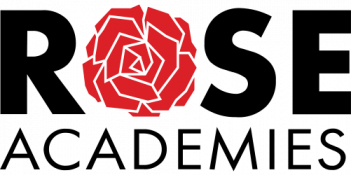How Many Hours Should You Study For An Exam?
Studying well can make or break your GPA and is a skill that will come in handy long into your educational future. Let’s take a closer look at how many hours should you study for an exam. A general rule is to spend two hours on homework or studying for every hour that your class meets. For example, if your economics class meets for an hour, three times a week, you might expect to spend six hours a week on homework or studying for your upcoming econ exams. However, honing in your studying routine can help to streamline your process and ensure the best outcomes on your next test. Below are some tips to plan your next study session and utilize the right amount of time for you.
Get a good grasp on what it is you need to study
A good way to consolidate time spent studying is to narrow in on what information you need to learn for your upcoming exams. Your teacher may provide you with a study guide, or more generic guidelines, such as a range of chapters that the test will be over. Take these suggestions seriously and don’t hesitate to ask questions for further information on what will be included on the exam.
Understand how long you need for each task
Depending on the exam, studying could include a variety of tasks including reading, taking notes, memorization of formulas, and more. Knowing how long you take to complete each of these exercises can help you plan how many hours should you study for an exam. If you don’t have a good grasp of this already, a helpful endeavor can be to record the time just before and after completing each task. Understanding how long it takes you to read the required material, fill out study guides, or go over your notes in a way that allows mastery of the concepts is a key place to start in planning how long you need to study.
Plan ahead
A common pitfall of exam preparedness is procrastination. The best way to avoid unintended procrastination is to plan ahead as much as possible. Many courses will provide you with a syllabus at the start with all the upcoming dates for exams. If you know that you have a midterm coming up in two weeks and deduce that it will take you 20 hours of study time to feel well prepared, it will be more advantageous for you to spend each day of the next two weeks studying for one to two hours a day than to attempt to fit all 20 hours into just a few days before the test and either burning out, or shortchanging the amount of time spent studying. Keeping your trusty syllabi handy and keeping track of important upcoming dates in a planner is a great place to start.
Sleep on it
Sacrificing sleep for the sake of a few more study hours may seem like a good idea for acing your next exam, but could actually backfire. A good night’s rest has proven to be more effective for remembering information than if you had stayed awake to study for the same amount of time. Sleep is an important factor in knowing how many hours should you study for an exam. Not only does sleep improve memory, but it also means that you’ll feel refreshed for your exam rather than sleepily taking your midterm and struggling to recall what you tried to cram into your brain during an all-nighter. The best way to ensure enough sleep and adequate study time is to plan ahead and spread your study hours out accordingly.
Strategizing How Many Hours Should You Study For An Exam
When it comes to your study strategy, understanding what material you need to know, how long it will take you to learn, and when the best time is for you to work on it, will go a long way in improving your exam outcomes. At Rose, our teachers are dedicated to your success and help you to plan for it by providing the tools needed for a fulfilling academic career. Explore our website at Go2Rose to learn more and register for classes today.
Contact Rose Academies today at 520-797-4884 or visit their enrollment page to get more information about how to enroll your student in high school at the best charter schools in Tucson!

People Also Ask
The purpose of charter schools is to give families an alternate choice of public tuition-free schools that they can choose to send their students to instead of traditional public or private schools. Charter schools are granted more flexibility in how they are operated, but they are still held to high standards of performance.
Charter schools are better than public schools because they provide students and their families with more options regarding where to attend school and what type of schooling is provided.